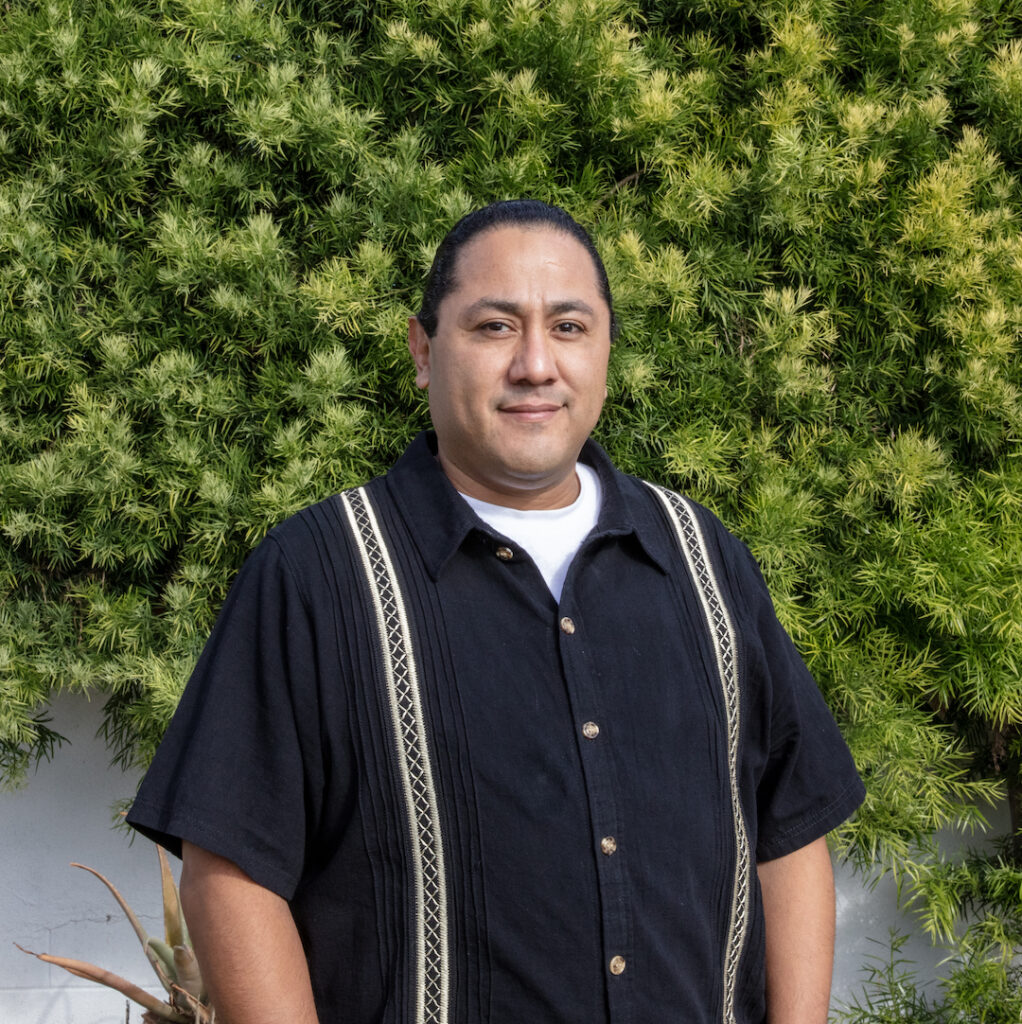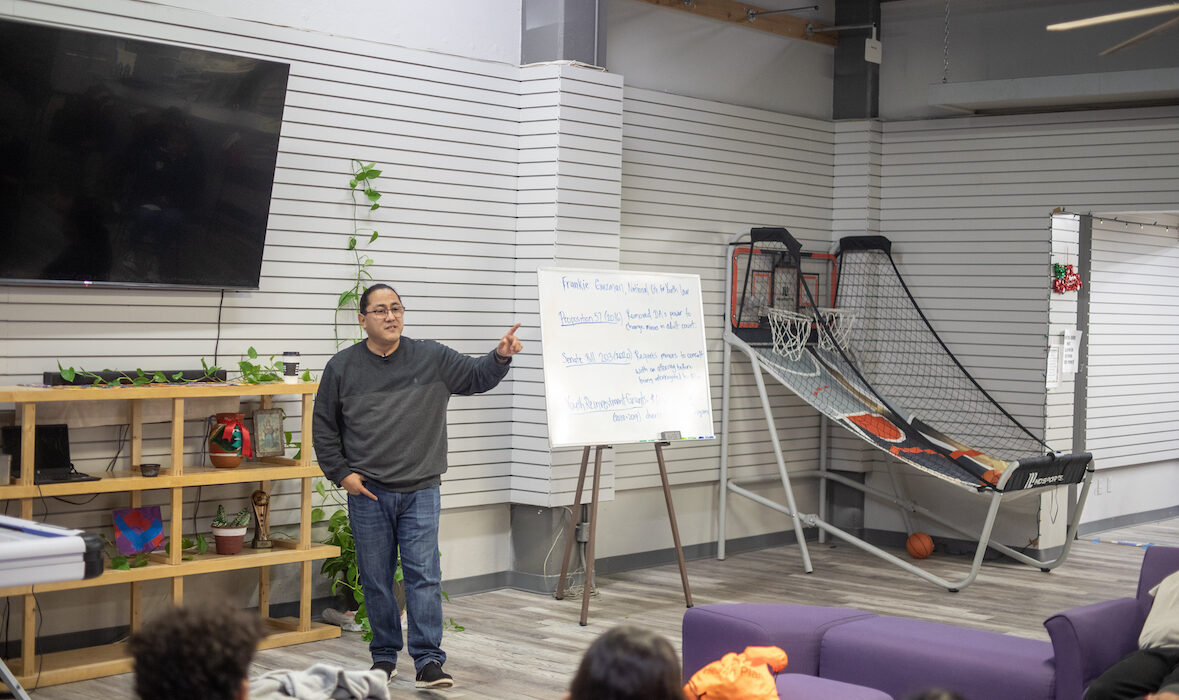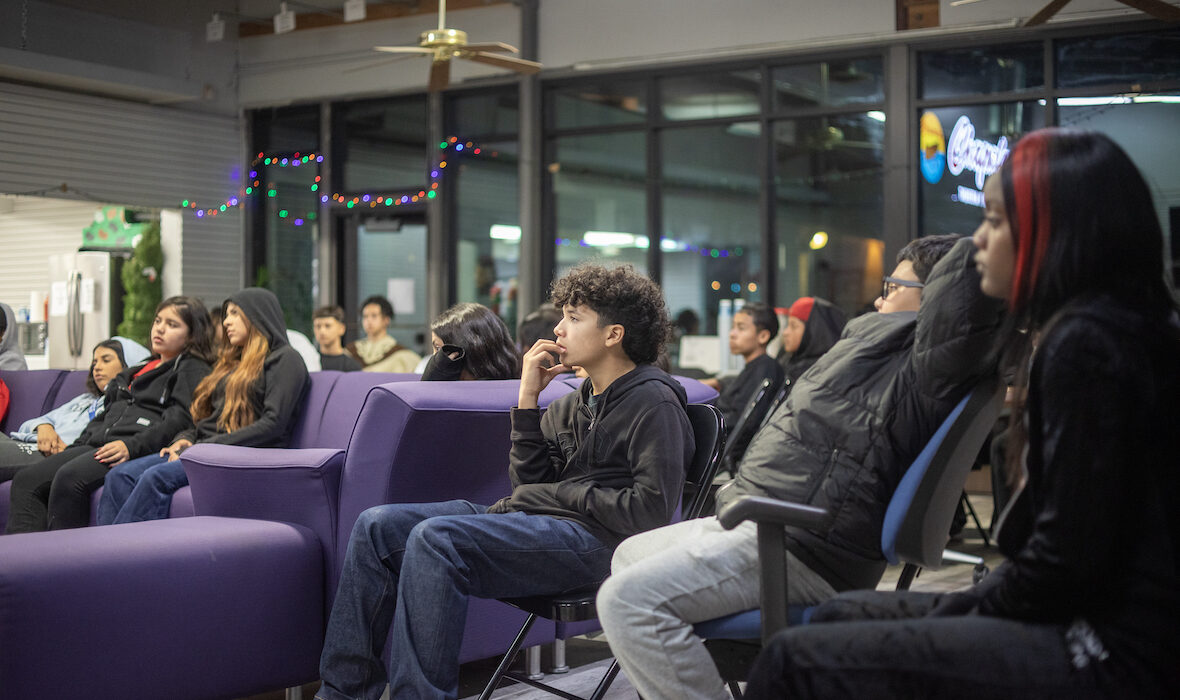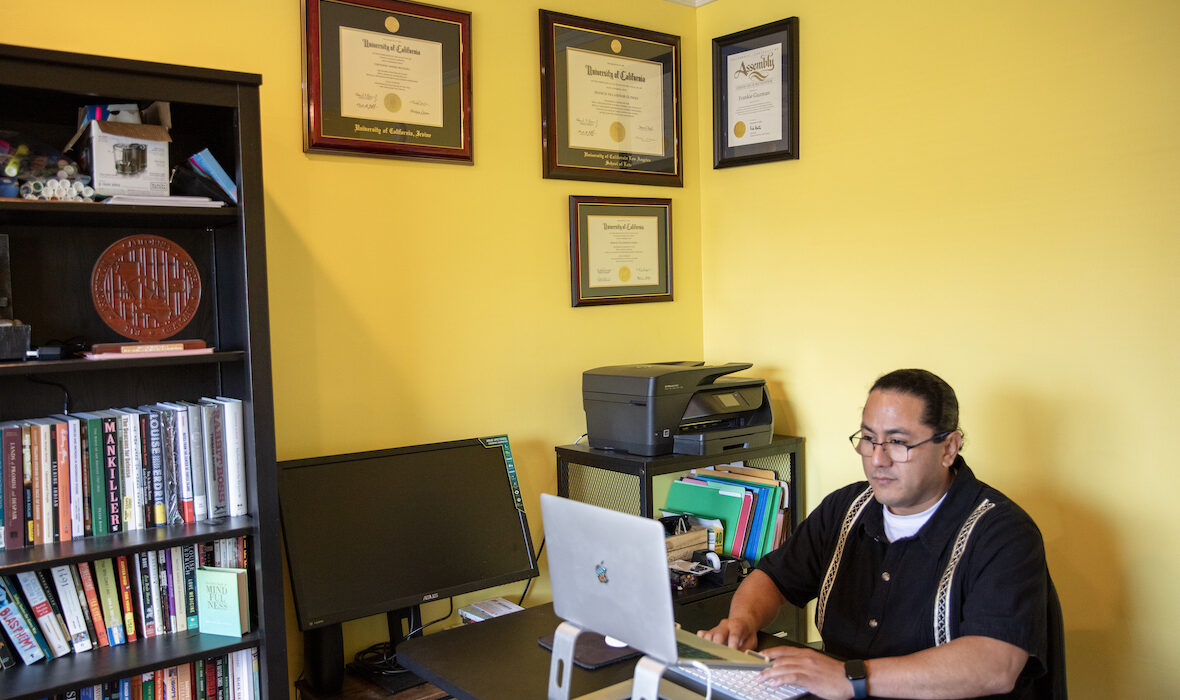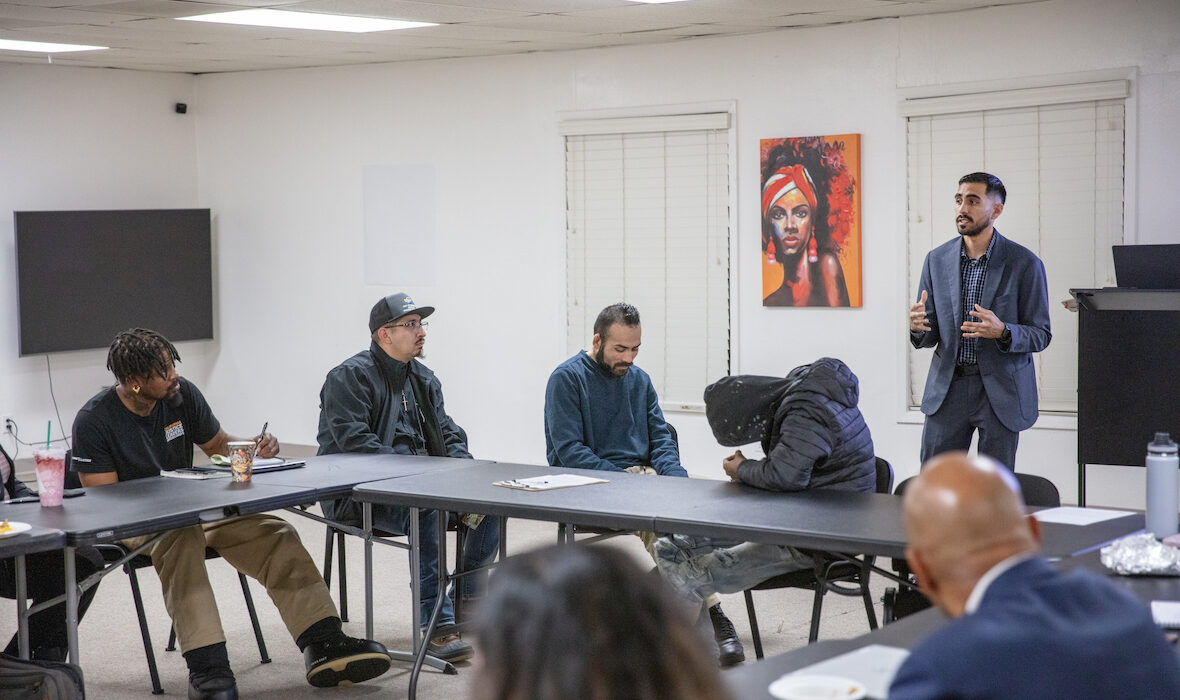Transforming the justice system by centering youth voices and outcomes
Overview
Frankie Guzman’s future in advocacy began at age five when his 16-year-old brother was tried as an adult and imprisoned for life, leaving Guzman longing for a male role model, and exposed regularly to the realities of incarceration. Despite initially excelling in school, Guzman was drawn to the sense of belonging and mentorship offered by youth in a local gang – an association that led to his own incarceration at age 15. After experiencing a decade of trauma at violent, overcrowded facilities, Guzman emerged determined to minimize the impact of the legal system on other youth. His academic talents carried him to community college, University of California, Berkeley, and University of California, Los Angeles School of Law.
Despite academic success and valuable lived experience with criminal law, Guzman’s past record prevented his admission to the California State Bar. He launched a 16-month campaign to prove his “good moral character” and was eventually sworn in as a lawyer. Since 2013, Frankie Guzman has led National Center for Youth Law’s Youth Justice program, which empowers youth to participate in systems reform, shift the youth justice system from punishment to public health, and eliminate racial disparities in the system. While in this role Guzman has served as a primary contributor to more than 20 pieces of legislation to reform youth justice.
“I never left my gang. My gang expanded to include youth from all backgrounds.”
Primary Regions Served
Challenge
- At the turn of the 21st century, 200,000 minors were arrested annually in California. Years of reform have reduced the number to 26,000 in 2022 but there are still far too many youth involved in the system.[1]
- Most system-involved youth have suffered trauma, and instead of being provided with therapeutic supports, they have historically been placed in hostile environments that exacerbate harm like jails, juvenile halls, youth prisons, and adult prisons.[2]
- Approximately 75% of the total youth population admitted to county-operated facilities are Latino and Black, highlighting a systemic disparity within the justice system.[3]
- In July 2023, California shuttered the last of its state juvenile corrections facilities, transferring all remaining youth to county responsibility. However, there is little guidance and accountability for the counties as they develop new youth incarceration systems.[4]
Innovation
- Under Guzman’s leadership, NCYL advocates for statewide policy change, convenes state and regional coalitions to advocate for young people, and provides direct services to youth, families, and community leaders, helping them file litigation and hold systems accountable.
- Guzman believes that no one is better suited to inform systems than people with lived experience. He mentors young individuals, involves them in justice reform campaigns, trains them to engage in policy advocacy, and advocates for their inclusion in decision-making processes.
- To create opportunity for youth leadership, Guzman and his team build capacity within existing nonprofits that engage youth, participate strategically in the passage and implementation of key policies, and partner with system leaders, administrators, and elected officials. He regularly convenes these groups and elevates opportunities for them to impact policy.
- Guzman co-founded the California System-involved Bar Association, aiding individuals with criminal histories to pursue legal careers and educating legal institutions and policymakers on increasing access to the legal profession.
Impact
- Guzman was a primary contributor to more than 20 pieces of legislation, including Proposition 57. Approved by voters in 2016, Prop 57 reduced the prosecution of children in the adult criminal system. Other legislative victories made parole more accessible to youth sentenced to prison, and abolished life without parole for those sentenced as minors.
- NCYL conducted a three-year campaign aimed at enhancing youth justice practices in Santa Clara County. The effort contributed to the county gaining access to millions in new funding, reducing the incarcerated juvenile population by half, and empowering more than 300 system-involved youth to advocate for change and ensure accountability among county leaders.
- When major policy opportunities arise, like state ballot initiatives or county-based implementation of juvenile justice realignment, advocates across the state know they can depend on Frankie’s organizing and policy expertise to mobilize grassroots activists to push for community-based responses.
Opportunity
- The state of California is providing counties more than $200 million annually to create new locally based youth justice systems. [5] The transition of the state Division of Juvenile Justice to county-level administration presents an urgent and pivotal opportunity for Guzman to help re-envision the future of restorative youth justice in California and promote approaches that prioritize youth development and constructive outcomes.
- To prevent the replication of ineffective, punitive practices, Guzman seeks to partner, recommend new practices, and provide technical assistance to counties to help them prepare for the transition and increase opportunities for systems-involved youth to grow into healthy adults.
- Guzman is also thinking creatively about new approaches and partners, such as working with labor unions to create pipelines into apprenticeships for youth in county facilities and on probation.
-
- [1] The Impact of Proposition 21 on Juvenile Crime Rates in California. bit.ly/46T4Rsv
- [2] https://www.ncbi.nlm.nih.gov/pmc/articles/PMC3714673
- [3] LAO, Overview of Juvenile Justice System and Education Services in Juvenile Facilities. bit.ly/45y5AOZ
- [4] California Department of Corrections and Rehabilitation, Division of Juvenile Justice. https://bit.ly/3QgmIV2
- [5] LAO, Overview of Juvenile Justice System and Education Services in Juvenile Facilities. https://bit.ly/45y5AO
The written profile and video reflect the work of the leader(s) the year they received a Leadership Award. Please contact the leader(s) for current information.
